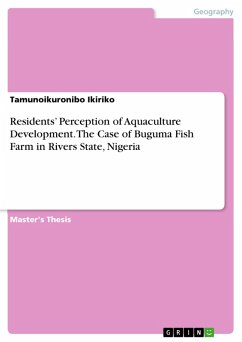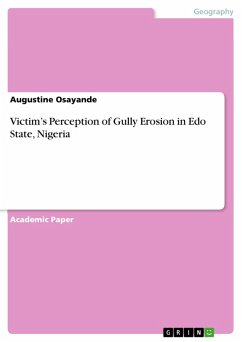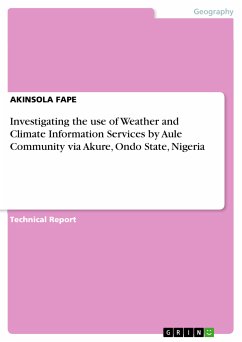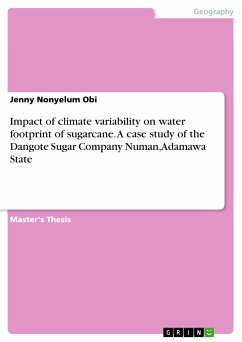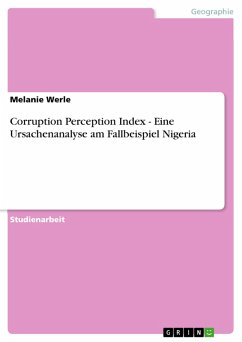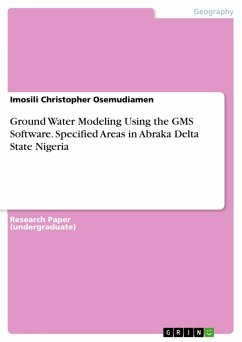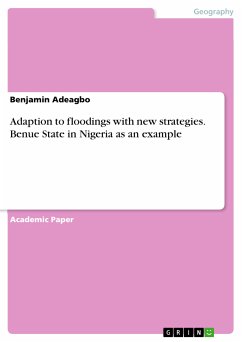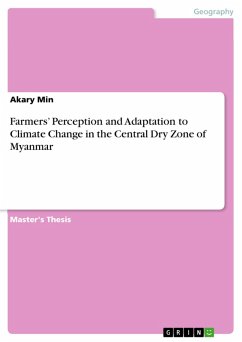Master's Thesis from the year 2017 in the subject Geography / Earth Science - Miscellaneous, , language: English, abstract: The high rate of urbanisation and population explosion in the world has placed high demand for food especially the demand for fish, which has continued to rise. Aquaculture, therefore, has manifested as a significant means of nutritious food production, income generation and livelihood support in the lives of so many natives around the globe. Buguma community residents who were primarily into traditional fishing to earn a living can hardly go out for fishing because of pipeline vandalism triggered pollution, rape of women fisher folks and criminal activities such as piracy, kidnapping, theft, etc. in the creeks. It is apparent that there is the loss of livelihood in Buguma thus the establishment of the Buguma fish farm as an intervention project. The researcher on this note develops the nexus to investigate the perception of Buguma residents to the Buguma fish farm and its potential to revitalize the livelihood base of the area. Specific objectives of this study are: to assess the level of awareness of the Buguma aquaculture farm and its products by Buguma community residents, ascertain the residents' perceptions of the aquaculture farm project and its activities in terms of positive and negative impacts, identify the benefits enjoyed from the Buguma fish farm by the respondents and appraise the operational successes and challenges of the Buguma fish farm development from 2013-2016. This study was undertaken as a mixed method research with the use of convenience and stratified random sampling of households in 28 streets of Buguma. The research design used was the "Triangulation Mixed-Method Design". The number of questionnaires administered to residents' households was 384, while the number returned was 376. Data analysis employed descriptive statistical techniques - bar charts, pie charts, histogram with mode and percentages. In general, the result of the research work affirms that there was livelihood loss due to oil pollution from pipeline vandalism; and high level of criminal activities such as kidnapping and robbery but that the Buguma fish farm as an intervention project reinvigorated the livelihood base and improved the living standard of Buguma residents as it opened window of investment opportunities, serve as a tourism destination and provides jobs/ employment for Buguma residents. The researcher designs an agropolitan centre model for the area and recommends effective implementation.
Dieser Download kann aus rechtlichen Gründen nur mit Rechnungsadresse in A, B, BG, CY, CZ, D, DK, EW, E, FIN, F, GR, HR, H, IRL, I, LT, L, LR, M, NL, PL, P, R, S, SLO, SK ausgeliefert werden.

